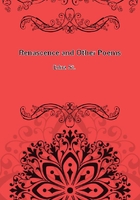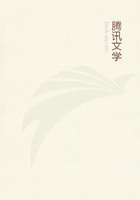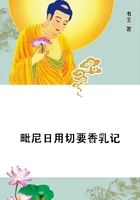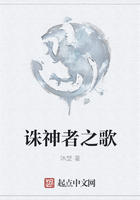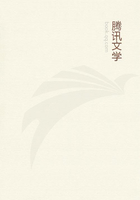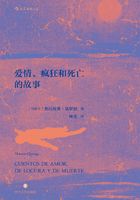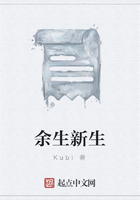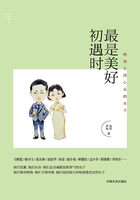Dr. Arnold's energies were by no means exhausted by his duties at Rugby. He became known not merely as a headmaster, but as a public man. He held decided opinions upon a large number of topics; and he enunciated them--based as they were almost invariably upon general principles--in pamphlets, in prefaces, and in magazine articles, with an impressive self-confidence. He was, as he constantly declared, a Liberal. In his opinion, by the very constitution of human nature, the principles of progress and reform had been those of wisdom and justice in every age of the world--except one: that which had preceded the fall of man from Paradise. Had he lived then, Dr. Arnold would have been a Conservative. As it was, his Liberalism was tempered by an 'abhorrence of the spirit of 1789, of the American War, of the French Economistes, and of the English Whigs of the latter part of the seventeenth century'; and he always entertained a profound respect for the hereditary peerage. It might almost be said, in fact, that he was an orthodox Liberal. He believed in toleration too, within limits; that is to say, in the toleration of those with whom he agreed. 'I would give James Mill as much opportunity for advocating his opinion,' he said, 'as is consistent with a voyage to Botany Bay.'
He had become convinced of the duty of sympathising with the lower orders ever since he had made a serious study of the Epistle of St. James; but he perceived clearly that the lower orders fell into two classes, and that it was necessary to distinguish between them. There were the 'good poor'--and there were the others. 'I am glad that you have made acquaintance with some of the good poor,' he wrote to a Cambridge undergraduate. 'I quite agree with you that it is most instructive to visit them.'
Dr. Arnold himself occasionally visited them, in Rugby; and the condescension with which he shook hands with old men and women of the working classes was long remembered in the neighbourhood. As for the others, he regarded them with horror and alarm. 'The disorders in our social state,' he wrote to the Chevalier Bunsen in 1834, 'appear to me to continue unabated. You have heard, I doubt not, of the Trades Unions; a fearful engine of mischief, ready to riot or to assassinate; and I see no counteracting power.'
On the whole, his view of the condition of England was a gloomy one. He recommended a correspondent to read 'Isaiah iii, v, xxii; Jeremiah v, xxii, xxx; Amos iv; and Habakkuk ii', adding, 'you will be struck, I think, with the close resemblance of our own state with that of the Jews before the second destruction of Jerusalem'. When he was told that the gift of tongues had descended on the Irvingites at Glasgow, he was not surprised. 'I should take it,' he said, 'merely as a sign of the coming of the day of the Lord.' And he was convinced that the day of the Lord was coming--'the termination of one of the great aiones of the human race'. Of that he had no doubt whatever; wherever he looked he saw 'calamities, wars, tumults, pestilences, earthquakes, etc., all marking the time of one of God's peculiar seasons of visitation'. His only uncertainty was whether this termination of an aion would turn out to be the absolutely final one; but that he believed 'no created being knows or can know'. In any case, he had 'not the slightest expectation of what is commonly meant by the Millennium'. And his only consolation was that he preferred the present Ministry, inefficient as it was, to the Tories.
He had planned a great work on Church and State, in which he intended to lay bare the causes and to point out the remedies of the evils which afflicted society. Its theme was to be, not the alliance or union, but the absolute identity of the Church and the State; and he felt sure that if only this fundamental truth were fully realised by the public, a general reformation would follow. Unfortunately, however, as time went on, the public seemed to realise it less and less. In spite of his protests, not only were Jews admitted to Parliament, but a Jew was actually appointed a governor of Christ's Hospital; and Scripture was not made an obligatory subject at the London University.
There was one point in his theory which was not quite plain to Dr. Arnold. If Church and State were absolutely identical, it became important to decide precisely which classes of persons were to be excluded, owing to their beliefs, from the community.
Jews, for instance, were decidedly outside the pale; while Dissenters--so Dr. Arnold argued--were as decidedly within it.
But what was the position of the Unitarians? Were they, or were they not, members of the Church of Christ? This was one of those puzzling questions which deepened the frown upon the Doctor's forehead and intensified the pursing of his lips. He thought long and earnestly upon the subject; he wrote elaborate letters on it to various correspondents; but his conclusions remained indefinite. 'My great objection to Unitarianism,' he wrote, 'in its present form in England, is that it makes Christ virtually dead.' Yet he expressed 'a fervent hope that if we could get rid of the Athanasian Creed many good Unitarians would join their fellow Christians in bowing the knee to Him who is Lord both of the dead and the living'. Amid these perplexities, it was disquieting to learn that 'Unitarianism is becoming very prevalent in Boston'. He inquired anxiously as to its 'complexion' there; but received no very illuminating answer. The whole matter continued to be wrapped in a painful obscurity, There were, he believed, Unitarians and Unitarians; and he could say no more.

